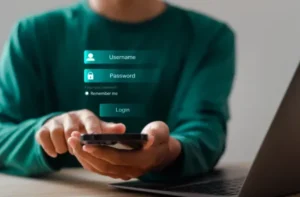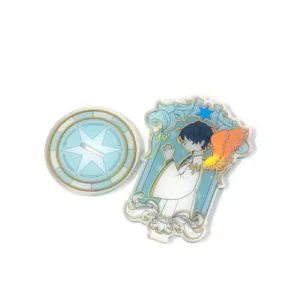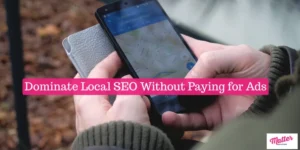Sometimes, we simply don’t have the answers and that’s okay. Whether we’re facing a challenging question, a complex topic, or a moment of uncertainty, there are countless ways to express that we don’t have all the answers. Finding a thoughtful way to say “I have no idea” can help communicate humility, humor, or empathy.
Here, we explore 30 creative, warm, and professional alternatives that can help you navigate those moments with ease and connection.
What Does “I Have No Idea” Mean?
“I have no idea” is a common phrase used to express a lack of knowledge or understanding about a specific topic or question. It conveys that the speaker doesn’t have information or insights to provide in response.
When to Use “I Have No Idea”
This phrase can be used whenever you’re uncertain, uninformed, or caught off guard by a question. Whether in a professional setting, social context, or casual conversation, expressing uncertainty with sincerity and humor can make these moments feel lighter and more personable.
Is It Professional/Polite to Say “I Have No Idea”?
While “I have no idea” is generally polite, it may feel too informal in some situations. In professional contexts, using a more refined or detailed alternative can come across as more thoughtful or polite. In personal conversations, adding a touch of humor or warmth can also help make the moment feel more connected.
I Have No Idea Synonyms:
- I’m Not Sure
- That’s a Good Question
- I’ll Have to Look That Up
- I Don’t Have That Information Right Now
- I’m Not the Best Person to Answer That
- Let Me Find Out
- That’s Outside My Expertise
- I’ll Have to Do Some Research
- I Can’t Say for Sure
- It’s a Mystery to Me
- I’m Drawing a Blank
- I Haven’t Got a Clue
- I’m Still Learning About That
- That’s Not My Area of Expertise
- I’m Completely Stumped
- I’ll Need More Time to Answer That
- It’s a Bit Beyond Me
- I’m Still Getting Up to Speed
- I’d Have to Check
- I Can’t Confirm Right Now
- I Haven’t Looked into That Yet
- I’ve Got No Information on That
- I’m in the Dark on That
- I’ll need to Double-Check
- I’m Unsure at the Moment
- That’s Beyond My Knowledge Right Now
- I’ll Look into That for You
- I Don’t Have an Answer Right Now
- That’s New to Me
- I’ll Keep You Updated Once I Know
1. I’m Not Sure
Meaning: Expresses a lack of certainty.
Explanation: This phrase is simple, conveying uncertainty politely and professionally.
Example: “I’m not sure about the answer, but I can find out for you.”
Tone: Professional, polite.
2. That’s a Good Question
Meaning: Recognizes the question’s value while admitting a lack of knowledge.
Explanation: This phrase helps acknowledge the question’s significance, often showing appreciation for it.
Example: “That’s a good question! I’ll look into it and get back to you.”
Tone: Positive, respectful.
3. I’ll Have to Look That Up
Meaning: Implies that more information is needed and that you’re willing to find it.
Explanation: This is a professional way to admit you don’t know something but will seek out the answer.
Example: “I’ll have to look that up to give you an accurate answer.”
Tone: Professional, proactive.
4. I Don’t Have That Information Right Now
Meaning: Politely indicates you don’t have the answer at the moment.
Explanation: This phrase is useful when speaking in professional settings where directness and clarity are valued.
Example: “I don’t have that information right now, but I’ll make sure to get it for you soon.”
Tone: Polite, straightforward.
5. I’m Not the Best Person to Answer That
Meaning: Admits a lack of knowledge and redirects to someone better suited.
Explanation: It’s respectful and professional, especially if you can refer them to someone else.
Example: “I’m not the best person to answer that, but I know someone who can help.”
Tone: Humble, professional.
6. Let Me Find Out
Meaning: Shows willingness to seek information.
Explanation: This phrase is proactive, showing you’re committed to finding the answer.
Example: “I’m not sure right now, but let me find out and get back to you.”
Tone: Professional, positive.
7. That’s Outside My Expertise
Meaning: Admits the question is beyond your knowledge area.
Explanation: It’s a polite way to state that the topic is beyond your specialty, which can be appropriate in professional settings.
Example: “That’s outside my expertise, but I can refer you to a specialist.”
Tone: Respectful, professional.
8. I’ll Have to Do Some Research
Meaning: Implies the need for additional information.
Explanation: This is a professional and respectful way to admit you’re not immediately informed.
Example: “I’ll have to do some research to give you an accurate answer.”
Tone: Respectful, diligent.
9. I Can’t Say for Sure
Meaning: Expresses uncertainty while being polite.
Explanation: This is ideal for moments when you’re unsure but still want to convey attentiveness.
Example: “I can’t say for sure, but I’ll look into it.”
Tone: Polite, attentive.
10. It’s a Mystery to Me
Meaning: Adds a lighthearted touch to expressing a lack of knowledge.
Explanation: This phrase is friendly and casual, good for informal settings.
Example: “It’s a mystery to me! I’ll try to figure it out, though.”
Tone: Casual, humorous.
11. I’m Drawing a Blank
Meaning: Implies a momentary lack of memory or understanding.
Explanation: This phrase works well in informal settings, adding a bit of humor to the situation.
Example: “I’m drawing a blank – let me check and get back to you!”
Tone: Friendly, lighthearted.
12. I Haven’t Got a Clue
Meaning: Informally admits a complete lack of knowledge.
Explanation: This phrase is relaxed and good for casual conversations.
Example: “I haven’t got a clue! Let’s see if we can find out together.”
Tone: Casual, humorous.
13. I’m Still Learning About That
Meaning: Indicates you’re not fully informed yet but are working on it.
Explanation: This phrase is polite and shows humility.
Example: “I’m still learning about that topic, so let me look into it further.”
Tone: Humble, polite.
14. That’s Not My Area of Expertise
Meaning: Admits that the topic is beyond your specialty.
Explanation: This is professional and polite, especially in workplace settings.
Example: “That’s not my area of expertise, but I can find someone who specializes in it.”
Tone: Respectful, professional.
15. I’m Completely Stumped
Meaning: Humorously indicates you’re clueless.
Explanation: This phrase is light-hearted and ideal for informal conversations.
Example: “I’m completely stumped – I’ll have to dig around for an answer!”
Tone: Casual, humorous.
16. I’ll Need More Time to Answer That
Meaning: Suggests you’re uncertain but willing to take time to find an answer.
Explanation: This phrase is polite and proactive, showing commitment.
Example: “I’ll need more time to answer that, but I’ll follow up as soon as possible.”
Tone: Respectful, committed.
17. It’s a Bit Beyond Me
Meaning: Admits that the topic is slightly out of your reach.
Explanation: This phrase is casual and warm, good for informal or conversational settings.
Example: “That’s a bit beyond me, but I’m curious to find out more.”
Tone: Casual, friendly.
18. I’m Still Getting Up to Speed
Meaning: Indicates you’re in the process of learning.
Explanation: It’s polite and gives a sense of progression in your knowledge.
Example: “I’m still getting up to speed on that topic – I’ll update you once I know more.”
Tone: Humble, polite.
19. I’d Have to Check
Meaning: Politely suggests that you’ll need to confirm information.
Explanation: This is professional and respectful, ideal for office environments.
Example: “I’d have to check with the team before I can give you a definite answer.”
Tone: Professional, polite.
20. I Can’t Confirm Right Now
Meaning: Admits uncertainty in a polite, professional way.
Explanation: This is great for professional settings where a quick, direct response is needed.
Example: “I can’t confirm that right now, but I’ll look into it for you.”
Tone: Professional, straightforward.
21. I Haven’t Looked into That Yet
Meaning: Suggests you haven’t yet explored the topic.
Explanation: This phrase is polite and signals your willingness to investigate.
Example: “I haven’t looked into that yet, but I’ll make sure to find out.”
Tone: Respectful, proactive.
22. I’ve Got No Information on That
Meaning: Directly states a lack of knowledge.
Explanation: This is ideal for professional situations where clarity is valued.
Example: “I’ve got no information on that currently, but I’ll work on getting some.”
Tone: Professional, polite.
23. I’m in the Dark on That
Meaning: Humorously indicates you lack knowledge.
Explanation: This phrase is friendly and can add light humor to casual contexts.
Example: “I’m in the dark on that one – let me see what I can find!”
Tone: Casual, humorous.
24. I’ll need to Double-Check
Meaning: Politely suggests that you’ll confirm the information.
Explanation: This is respectful and professional, ideal for offices.
Example: “I’ll need to double-check before I can give a firm answer.”
Tone: Professional, polite.
25. I’m Unsure at the Moment
Meaning: Politely conveys current uncertainty.
Explanation: This is respectful and ideal for professional settings.
Example: “I’m unsure at the moment, but I’ll check and get back to you.”
Tone: Respectful, professional.
26. That’s Beyond My Knowledge Right Now
Meaning: Suggests the topic is outside your current knowledge base.
Explanation: This is professional, and ideal for workplaces.
Example: “That’s beyond my knowledge right now, but I’ll look into it.”
Tone: Professional, respectful.
27. I’ll Look into That for You
Meaning: Shows willingness to find the answer.
Explanation: This is proactive and respectful, ideal for professional settings.
Example: “I’ll look into that for you and let you know what I find.”
Tone: Polite, proactive.
28. I Don’t Have an Answer Right Now
Meaning: Conveys uncertainty.
Explanation: This phrase is professional and straightforward.
Example: “I don’t have an answer right now, but I’ll follow up with more details.”
Tone: Professional, clear.
29. That’s New to Me
Meaning: Admits unfamiliarity with the topic.
Explanation: This is friendly and works well in casual settings.
Example: “That’s new to me! I’ll have to do some digging.”
Tone: Casual, friendly.
30. I’ll Keep You Updated Once I Know
Meaning: Promises follow-up once information is found.
Explanation: This is a polite and professional way to ensure further communication.
Example: “I’ll keep you updated once I know more about it.”
Tone: Professional, courteous.
Conclusion
Sometimes, not having the answer is the answer itself. These phrases let you communicate uncertainty with sincerity, respect, or even humor, depending on the context.
With these alternatives to “I have no idea,” you’ll have a range of expressions that can help you handle moments of uncertainty with ease and poise.
Recent Posts
- 30 Other Ways to Say “You’re Proud of Someone” (With Examples)
- 30 Other Ways to Say “I Hope Everything Is Going Well” (With Examples)
- 30 Other Ways to Say “Stay Tuned” Professionally (With Examples)
- 30 Other Ways to Say “Near Me” (With Examples)
- 30 Other Ways to Say “Please Let Me Know What You Think” (With Examples)

Sophia Lee is a passionate writer and the creative force behind LexiQuester, a space dedicated to the wonders of language and expression. She loves crafting meaningful content that enlightens and inspires readers. In her free time, Sophia enjoys exploring cultures, stories, and the art of communication.














